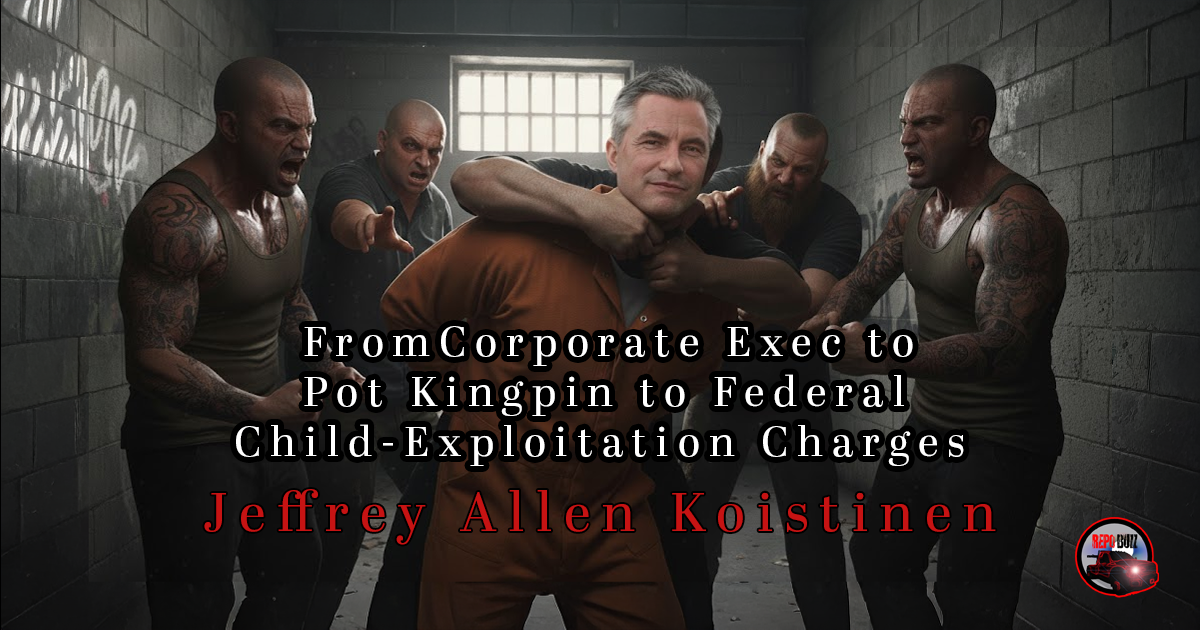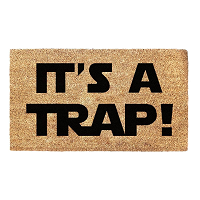The Many Cases Of Jeffrey Allen Koistinen: New Convictions & Update

When the name Jeffrey Allen Koistinen first appeared in Arizona court filings in August 2023, it was attached to a state indictment for sexual exploitation of a minor. That case would later be dismissed, but it marked the beginning of a widening criminal footprint—one that would soon span dismissed charges, drug-enterprise investigations, a series of marijuana-grow convictions, and ultimately an eleven-count federal child-exploitation case now scheduled for trial in 2026.
For more than two years, Koistinen’s name has been a constant presence in docket entries across Arizona’s criminal courts. The story that emerges from those filings is not a straight line, but a layered sequence of cases: one dismissed, one that resulted in a patchwork of guilty verdicts, and one—by far the most serious—that continues to grow inside a federal courtroom in Tucson.
A Dismissed Beginning
The first major entry appears on August 28, 2023, when the State of Arizona filed CR20233435, charging Koistinen with four counts of sexual exploitation of a minor. Each charge was a Class 2 felony, among the most serious under Arizona law. For months, the case advanced quietly. And then, on February 10, 2025, all four counts were dismissed. No conviction, no plea, and no remaining holds. The case simply ended.
Though closed, that case now reads like the opening chapter in a much larger story. It did not resolve the questions investigators had—rather, it shifted their attention elsewhere.

Shifting Into a Marijuana Enterprise Investigation
As the dismissed case wrapped up, Koistinen was already entangled in another Arizona matter—this one involving an alleged marijuana-growing operation.
Investigators claimed Koistinen and his two adult children were producing marijuana inside multiple homes he owned in Arizona. Court records show that the operation, according to prosecutors, went well beyond personal use and into commercial-scale production. What followed was a series of charges spread across 2024 and 2025, ranging from marijuana production to possession for sale to allegations of operating an illegal enterprise.
Those charges did not evaporate like the earlier case. Instead, they resulted in a string of convictions.
Koistinen was first found guilty in late September 2024, when a jury convicted him of possessing marijuana for sale and producing marijuana inside one of the grow locations. Several additional charges were dismissed or resulted in acquittal during that period, but the convictions marked the state’s first successful prosecution against him.
Then, in October 2025, the case expanded again. Prosecutors secured three more convictions—one for possession of marijuana for sale, two for producing marijuana, and a critical guilty verdict for illegal control of an enterprise, a Class 3 felony typically associated with ongoing criminal operations. In the same hearing, another Class 2 felony for marijuana production was added to the stack of guilty findings.
By fall 2025, prosecutors had established that Koistinen participated in a multi-location grow operation large enough to trigger some of Arizona’s highest-level marijuana felonies. Sentencing for the latter set of convictions was set for November 26, 2025, closing the chapter on a case that had grown steadily more serious over two years.
But while Arizona courts were working through the marijuana counts, federal investigators were building a much more severe case.
The Federal Indictment: Eleven Counts and High Stakes
Alongside the Arizona drug prosecutions, the federal government was conducting its own investigation. That inquiry eventually produced an eleven-count federal indictment, charging Koistinen with a series of child-exploitation offenses under some of the harshest laws on the books.
The indictment alleges that Koistinen attempted to persuade or coerce minors into sexually explicit conduct, attempted to produce child sexual abuse materials, and knowingly received illegal content through electronic means. Under federal law, these offenses carry heavy mandatory minimums: 15 to 30 years for production, at least 10 years for enticement, and up to 20 years for receipt or possession.
By the time Koistinen entered federal court in Tucson, he had already accumulated multiple convictions from the marijuana case. Federal prosecutors pointed to those convictions as evidence of his ability to operate outside the law, supporting their arguments for continued detention and more time to prepare for trial.
Then came an unexpected complication: Koistinen’s defense attorney had previously represented his own son—a potential witness in the federal case. The court had to assign a separate, “walled-off” attorney solely for cross-examining the son, and multiple hearings were held to ensure no prior confidential information could compromise the trial.
The conflict issue delayed the case, as did Koistinen’s request to suppress key electronic evidence, which the government asserts is central to its prosecution.
Now, after two years of motions, hearings, and continuances, the federal timetable is set:
-
A suppression hearing is scheduled for January 21, 2026.
-
A plea deadline follows a month later, on February 20, 2026.
-
The jury trial is scheduled for March 10, 2026.
Koistinen remains in federal custody as these proceedings advance.

A Legal Path Still Unfolding
Taken together, the cases involving Jeffrey Allen Koistinen show the evolution of a criminal investigation across multiple jurisdictions. A dismissed set of state sexual exploitation charges gave way to a complex marijuana enterprise prosecution, which produced a mix of acquittals, dismissed counts, and serious felony convictions. Those convictions, in turn, became part of the backdrop to a far more consequential federal indictment—one that carries mandatory prison sentences measured in decades.
As Koistinen approaches his 2026 federal trial, the Arizona marijuana enterprise convictions stand as the only finalized pieces of his legal record. The earlier dismissed case closes out a separate chapter. And the federal case—the most severe in both scope and penalty—now moves into its final stage, built on a detailed digital investigation and complicated by a series of conflicts and procedural challenges.
The outcome of the January suppression hearing will shape the trajectory of the federal trial. Whether the case ends in a plea or proceeds to a full jury trial in March, the federal charges represent the most significant legal exposure Koistinen has ever faced.
And unlike the first Arizona case, these charges show no signs of disappearing.
Dave Branch


















